
15 Dec, 2016
Understanding the Real Importance of the Thailand Halal Assembly 2016
Bangkok – The Thailand Halal Assembly 2016 held between 9-11 December had a special meaning well beyond its overt status as the country’s largest trade show for Muslim-friendly products and services. Against the backdrop of global and regional geopolitics, and the passing of the revered Thai monarch, His Majesty King Bhumibhol Adulyadej, the event showed how its importance extends well beyond to the achievement of the UN Sustainable Development Goals, the regional objective of ASEAN integration as well as the national goal of building inclusive societies.
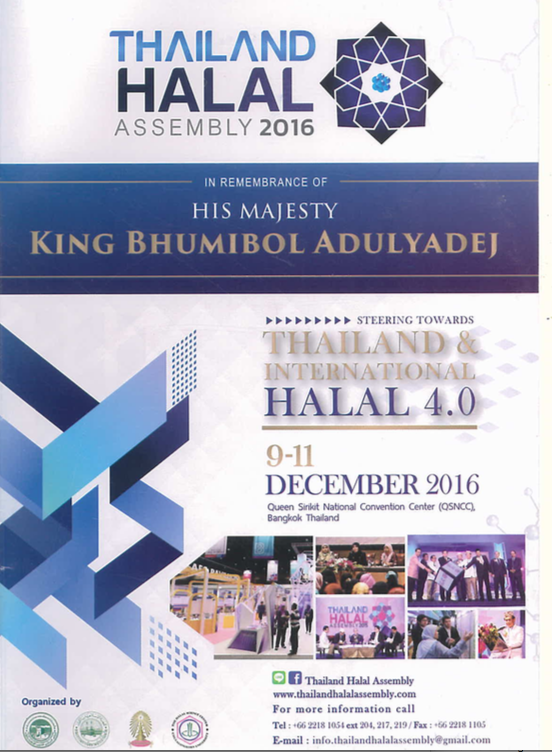 |
Thailand has a population of roughly six million Muslims, mainly located in the southern provinces. Granted observer status in the Organisation of Islamic Cooperation countries, Thailand sees the potential of harnessing the economic and social potential of its largest ethnic minority for improving its relations with the Islamic world and addressing the underlying causes of a long-running separatist insurgency.
The Halal Assembly is held annually as part of the Halal strategy set in place by the Thai government in 2001. This led to the 2003 Cabinet approval for the establishment of the Halal Science Center (HSC), Chulalongkorn University and the Halal Standard Institute of Thailand.
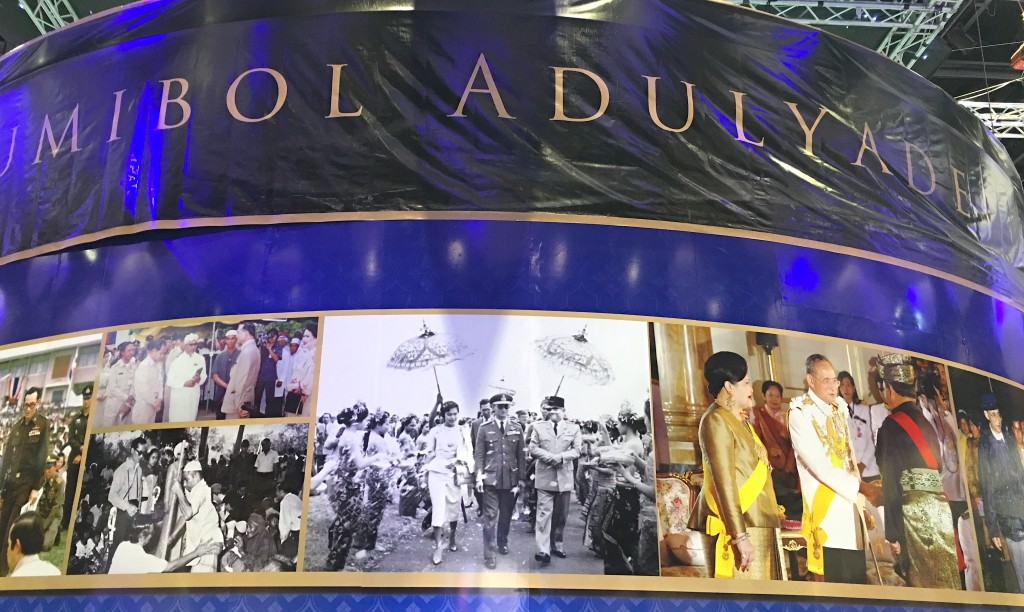 |
In his speech, HSC Director Dr Winai Dahlan recounted how this halal promotion policy was proving successful. He said that in 2001, Thailand exported US$241 million worth of halal products to the Member States of the Organisation of Islamic Cooperation. This has now increased 18-fold to US$5.6 billion. The figure grows even more if the value of the domestic market for halal food and the consumption of halal food by Muslim tourists to Thailand is included. The objective now is to grow this even further as part of the Thailand 4.0 economic development plan. The Thailand Halal Assembly is an important part of that strategy, but it is also serving a much wider purpose. Here’s how:
UN Sustainable Development Goals
The overarching goal of the new 17-point UN SDG agenda, which took effect this year, is poverty alleviation. The more than 200 exhibitors from Thailand came from all over the country, and covered herbal products to fashion items, foodstuffs and hotels. All were SMEs. This representation only scratches the surface of the Thai-Muslim businesses nationwide. Their downstream impact on poverty alleviation and income distribution has not been officially measured but it must be sizeable.
Another SDG goal is gender equality and job creation for women. Most of the booths were manned by women. The attendance at the workshops and seminars also included mainly women. Hundreds of young students from Islamic schools who came to the event were girls. Many of them seized the opportunity to practise their English with the foreign exhibitors.
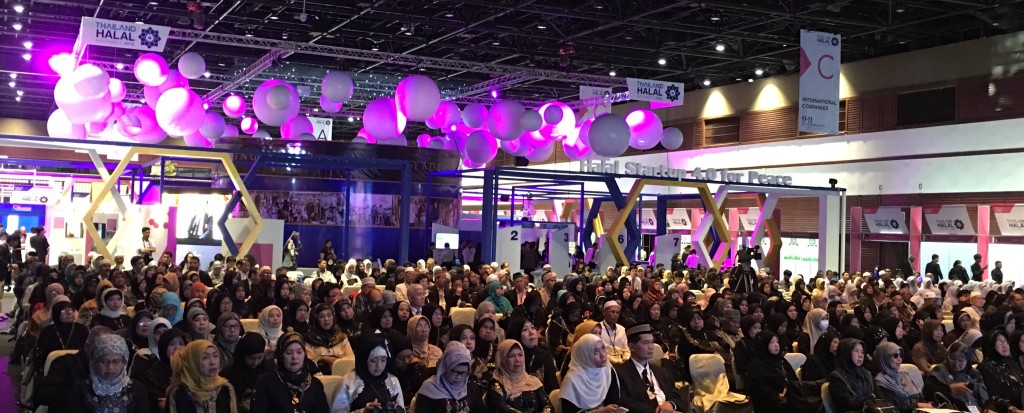 Thai-Muslim women turned out in huge numbers to learn, network and progress. |
|
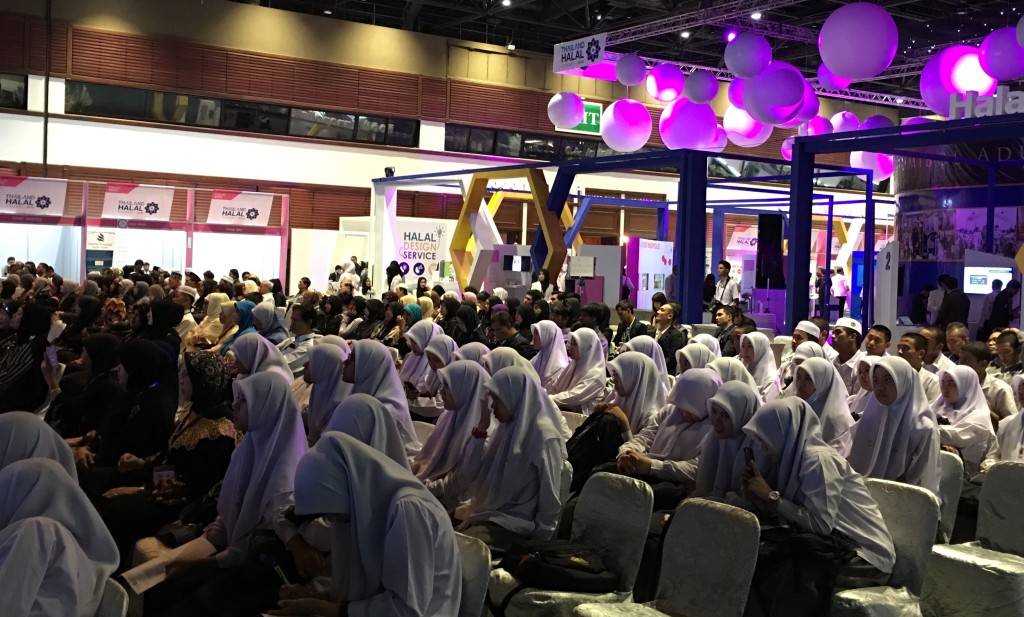 Hundreds of girls from Thai-Muslim schools also attended. |
|
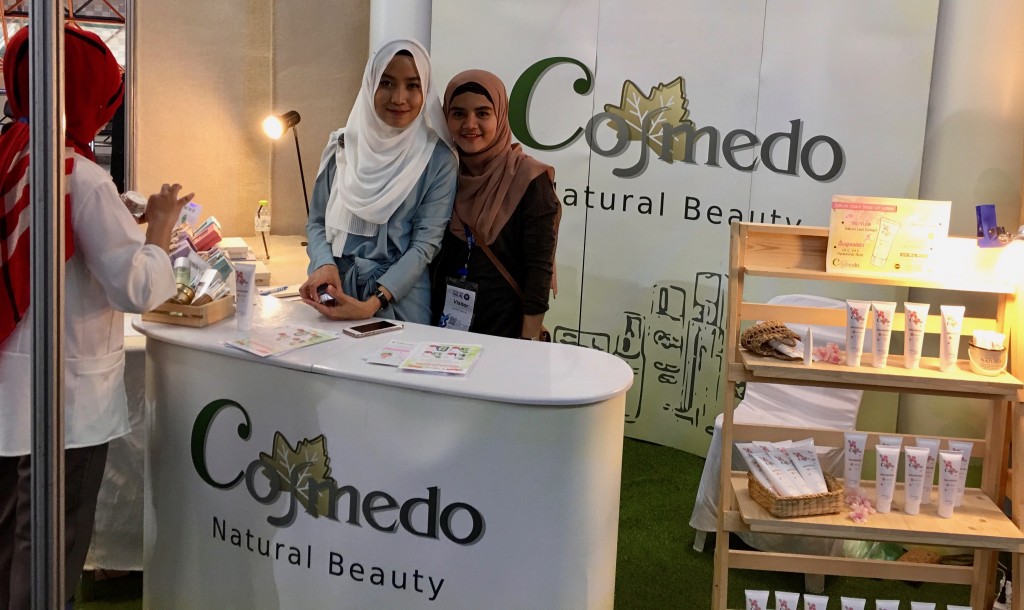 Many of the trade show booths were manned by women (pun intended). |
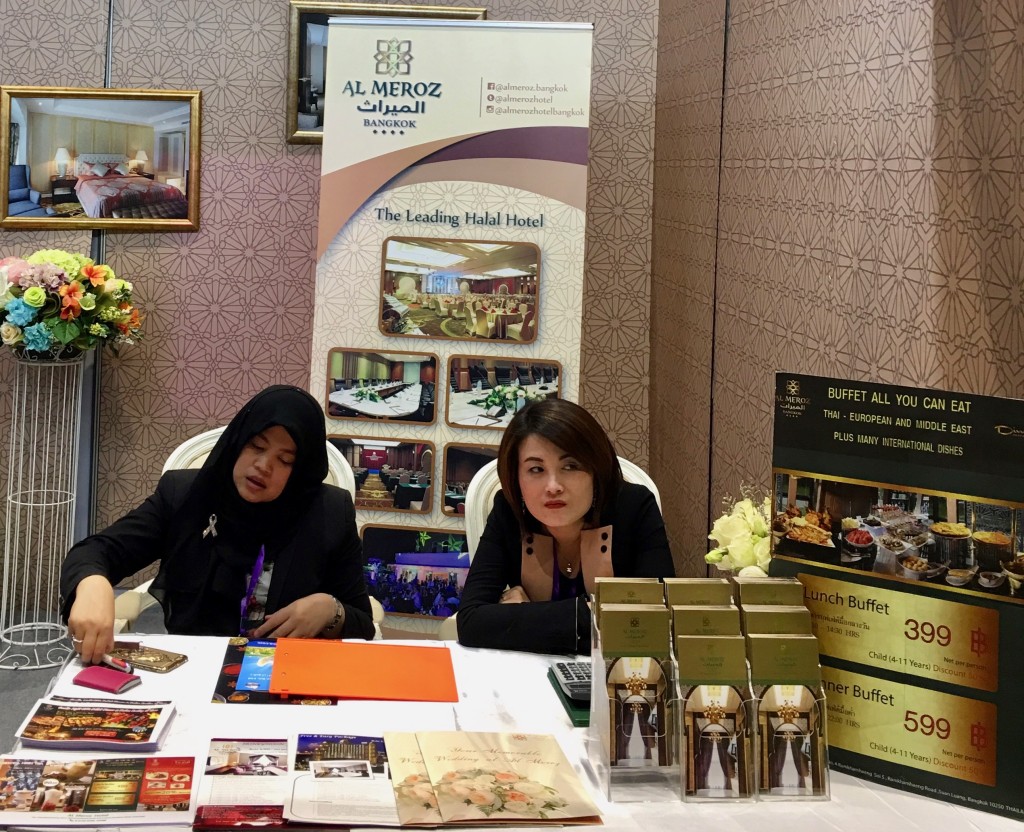 Many of the trade show booths were manned by women (pun intended). |
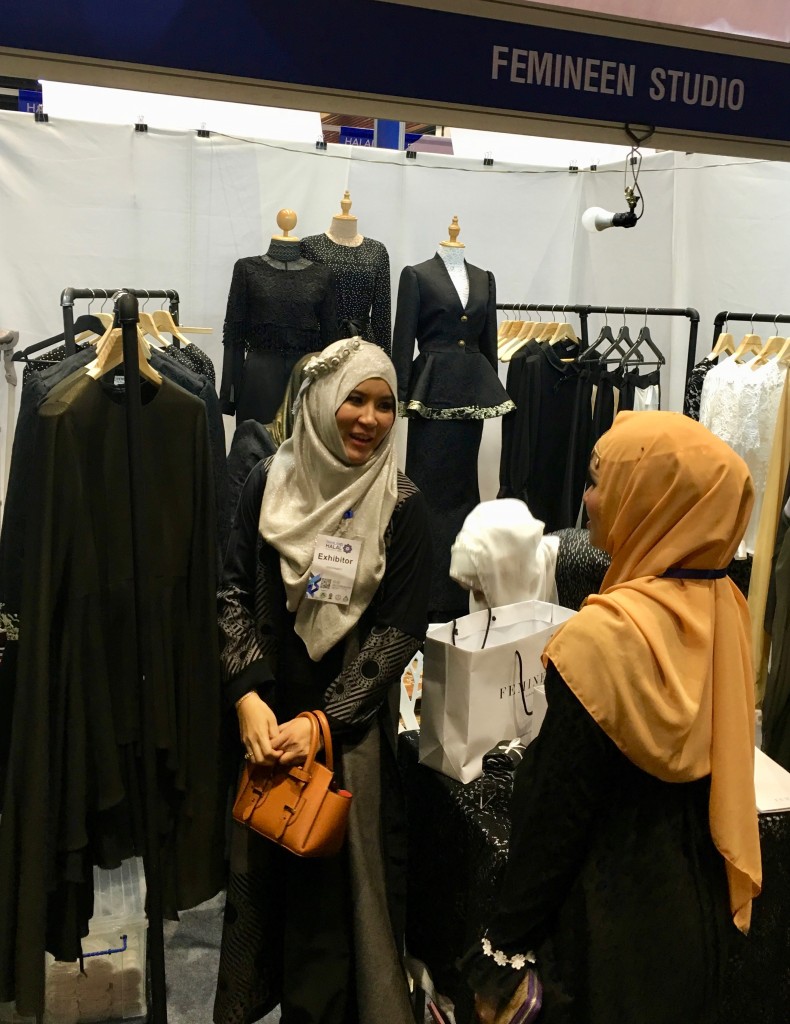 Many of the trade show booths were manned by women (pun intended). |
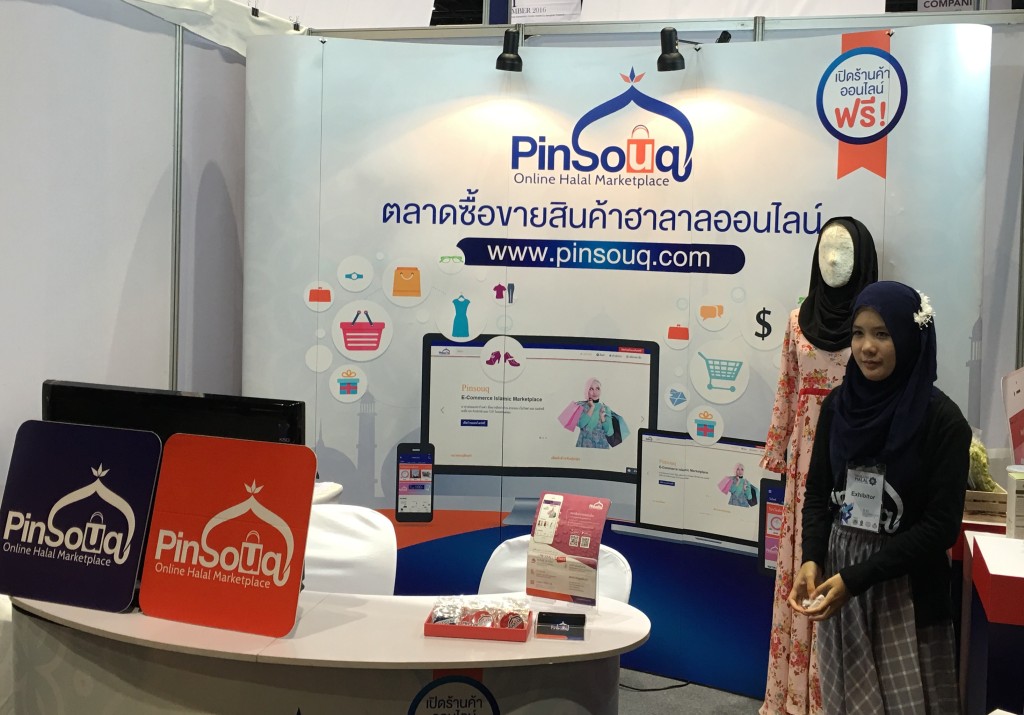 |
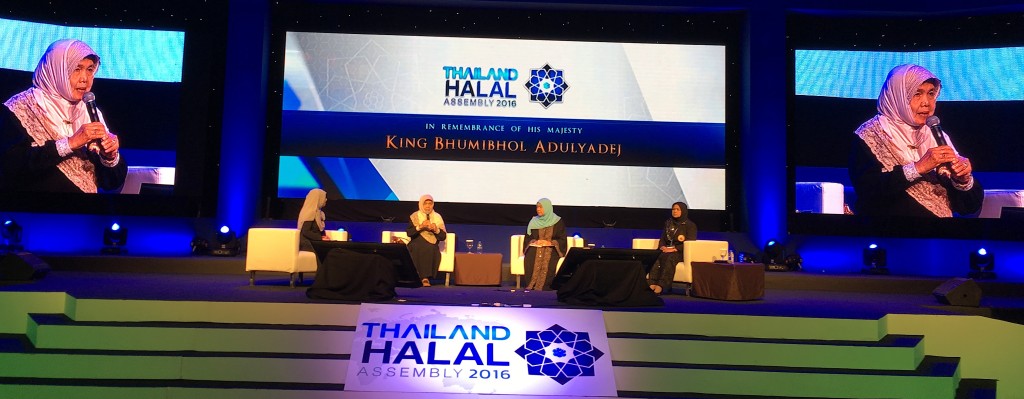 The Muslim Women’s Association of Thailand organised a panel discussion on the topic, “To follow in the Royal Footsteps of His Majesty the King” |
|
At a broader level, the Halal Assembly shows how Thailand is honouring its obligations under the UN’s Alliance of Civilizations initiative. The rights of minorities and the principles of non-discrimination are inherent in the UN Charter and various international treaties and declarations. Foremost among these is the UN Declaration on the Rights of Persons Belonging to National, Ethnic, Religious and Linguistic Minorities. Adopted unanimously by all Member States at the General Assembly in 1992, it committed them to respect, protect and promote the rights of minorities. The Thais are doing just that.
ASEAN objectives
The over-arching vision statement of ASEAN integration is to build One Vision, One Identity, One Community. Although ASEAN integration, which took effect in 2016, is excessively focussed on the economic sector, its second pillar, the socio-cultural blueprint, is just as important. If Muslims are a minority in Thailand, they are a majority in ASEAN as a whole. Buddhist-Muslim harmony will be critical to the success of ASEAN integration, and the Thai-Muslim community, geographically located at the strategic bridgehead of northern and southern ASEAN, will be at the core of that success.
One of the dignitaries at the opening ceremony was Osman Hassan, Secretary of State at the Ministry of Labor and Vocational Training and President of Cambodian Muslim Development Foundation. This editor also met four young men from Myanmar, three of whom were in I.T., and one, Mr Nyan Lin Tun, is director of Flight City, a travel company. Both Buddhist-majority Cambodia and Thailand are working to uplift their minorities and ensure socio-cultural integration. Does Myanmar get the message?
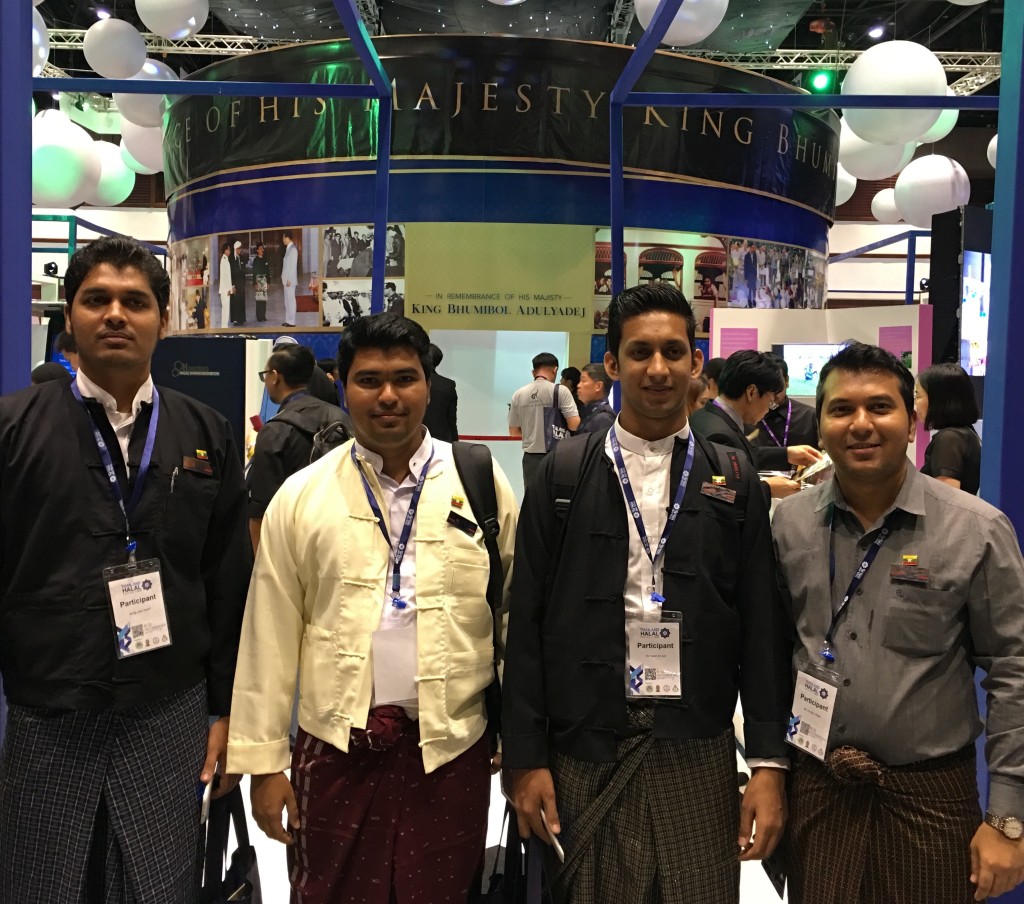
Myanmar’s Muslim participants: Nyan Lin Tun, director of Flight City (second from right), with his three friends.
The dance performance at the opening ceremony reflected this socio-cultural integration. It was specially chosen because the choreography, music and costumes reflected Islamic/Malay, Thai and Chinese influences, all of which can be seen in South Thailand.
Thailand objectives
This year, the theme of the Thailand Halal Assembly was revamped to focus on King Bhumibhol and his painstaking out-reach towards Thai Muslims. Huge panels were placed prominently in the centerpiece area illustrating the King’s many visits to South Thailand. At the opening ceremony, Thai-Muslim choral groups sang an Arabic version of the Royal Anthem. Calligraphers at the Islamic Arts Institute of Thailand designed the Number Nine, indicating the 9th king of the Chakri Dynasty. One speaker, a Thai of Pakistani origin, broke down and wept on stage recalling how the King had helped his family. A condolence book was signed by thousands of people, and will be presented to the Royal Household. A representative of the Chulamontri’s office noted that the King respected all religions, had visited all the provinces of South Thailand, and even funded a translation of the Islamic holy book, the Quran, into Thai.
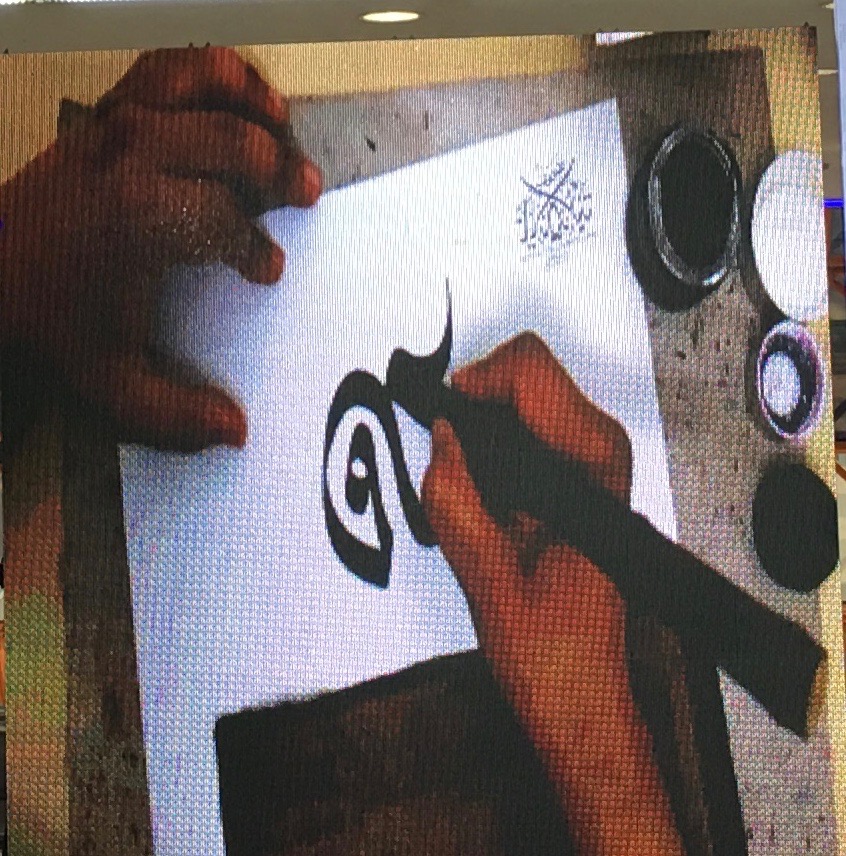 The Number Nine in Thai, indicating the status of King Bhumibhol as the 9th king of the Chakri dynasty being written in Arabic calligraphy… |
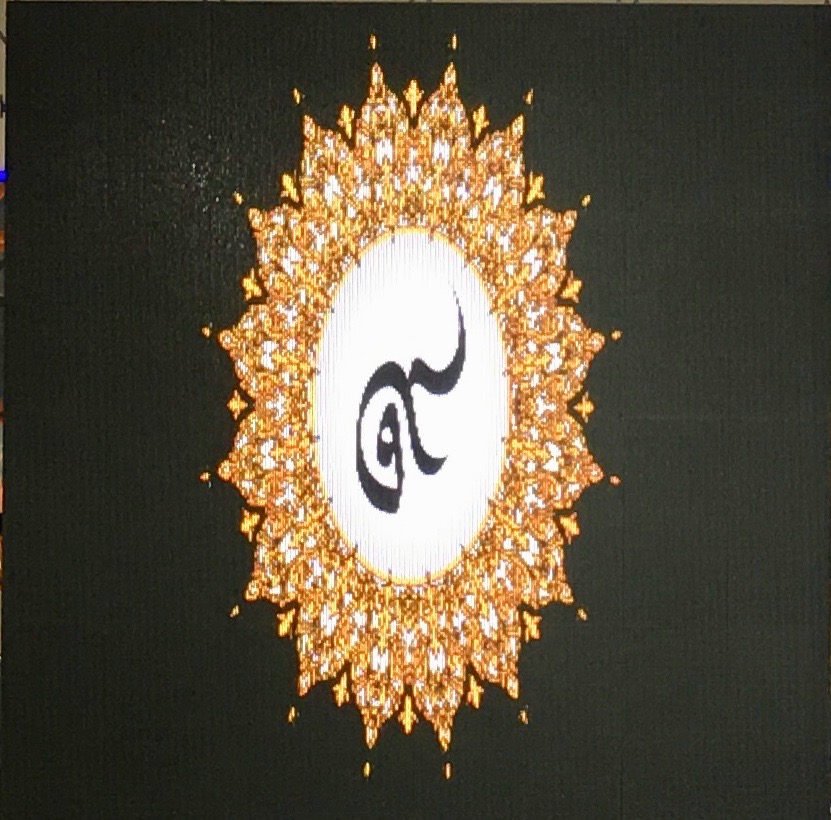 …and then embedded into a brilliant mosaic of Islamic design. |
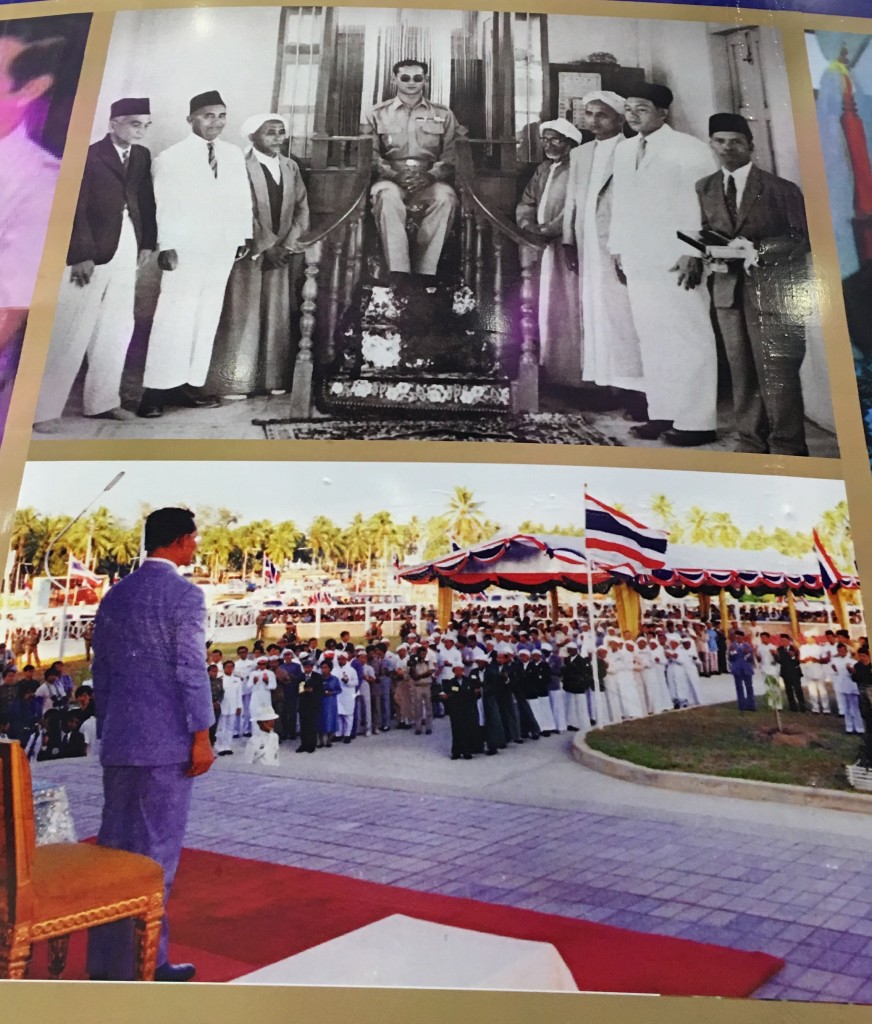 Pictures of King Bhumibhol’s many visits to the Thai-Muslim communities dominated this year’s Thailand Halal Assembly. |
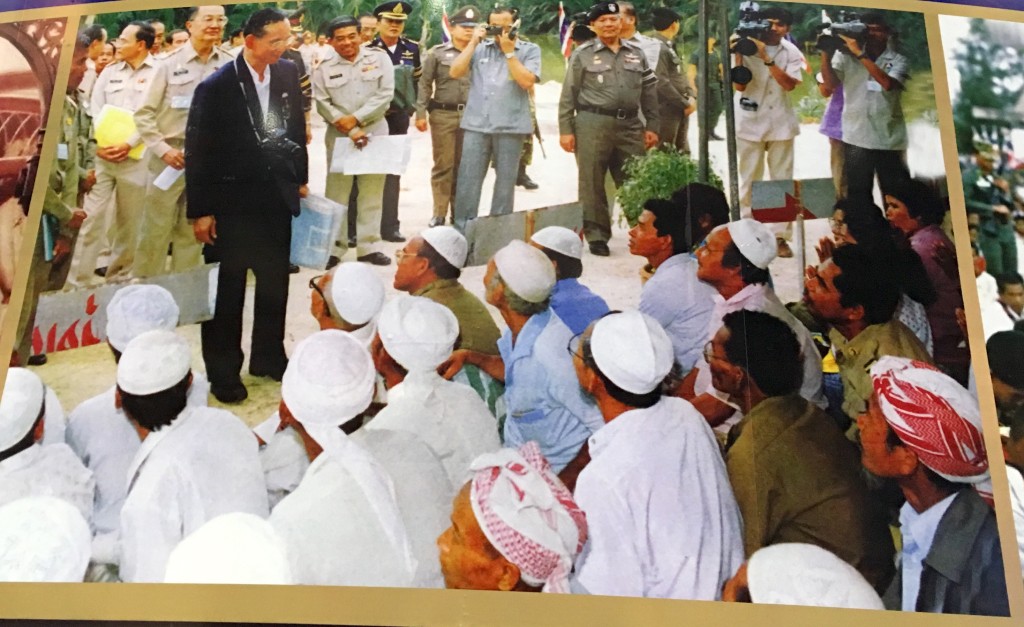 Pictures of King Bhumibhol’s many visits to the Thai-Muslim communities dominated this year’s Thailand Halal Assembly. |
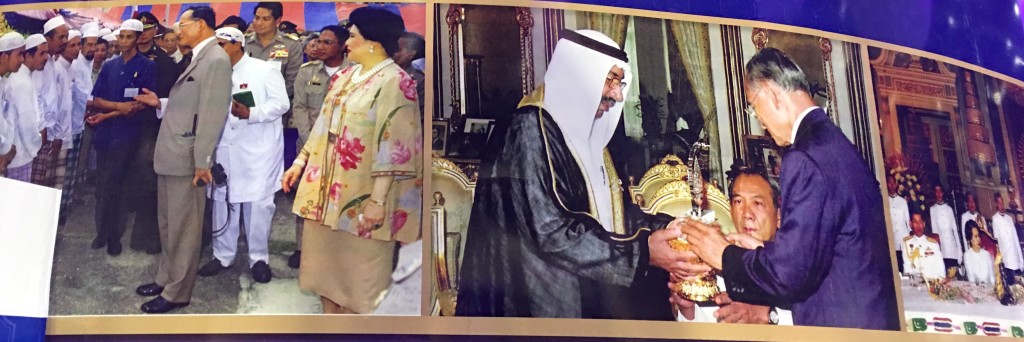 Pictures of King Bhumibhol’s many visits to the Thai-Muslim communities dominated this year’s Thailand Halal Assembly. |
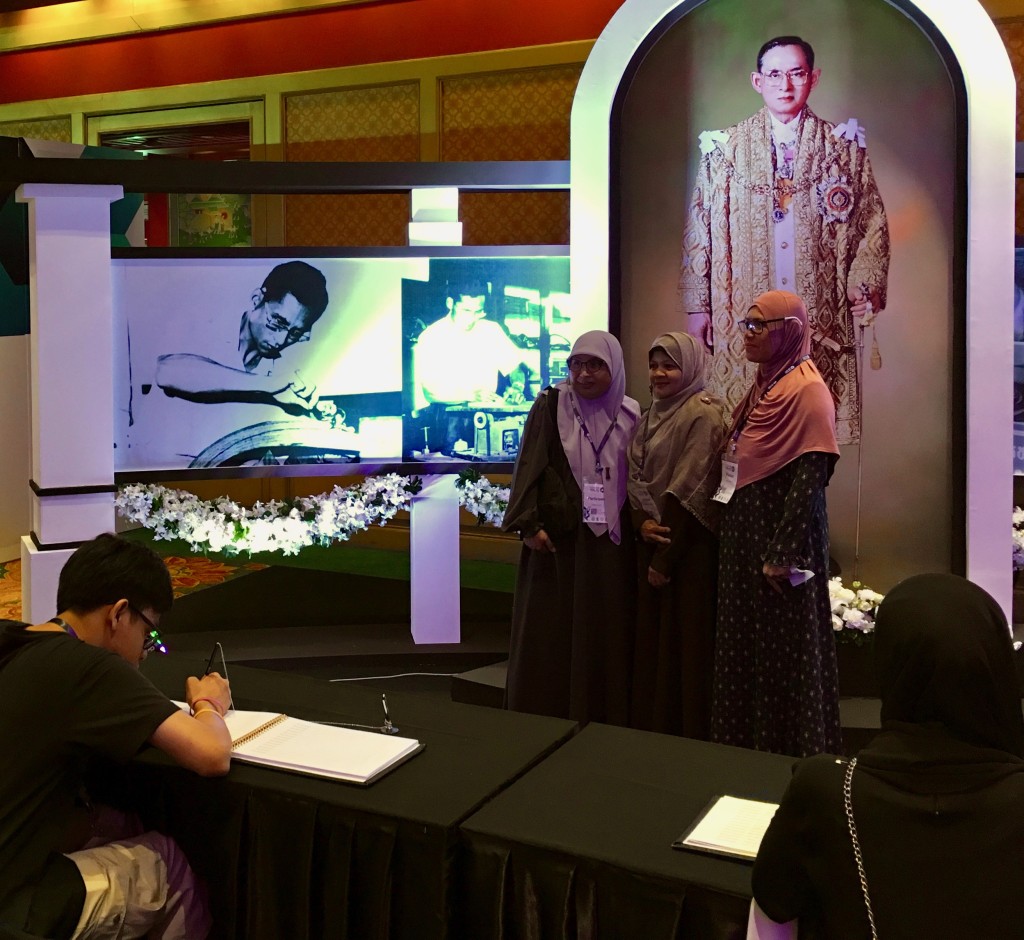 A royal condolence book was signed by thousands of people. |
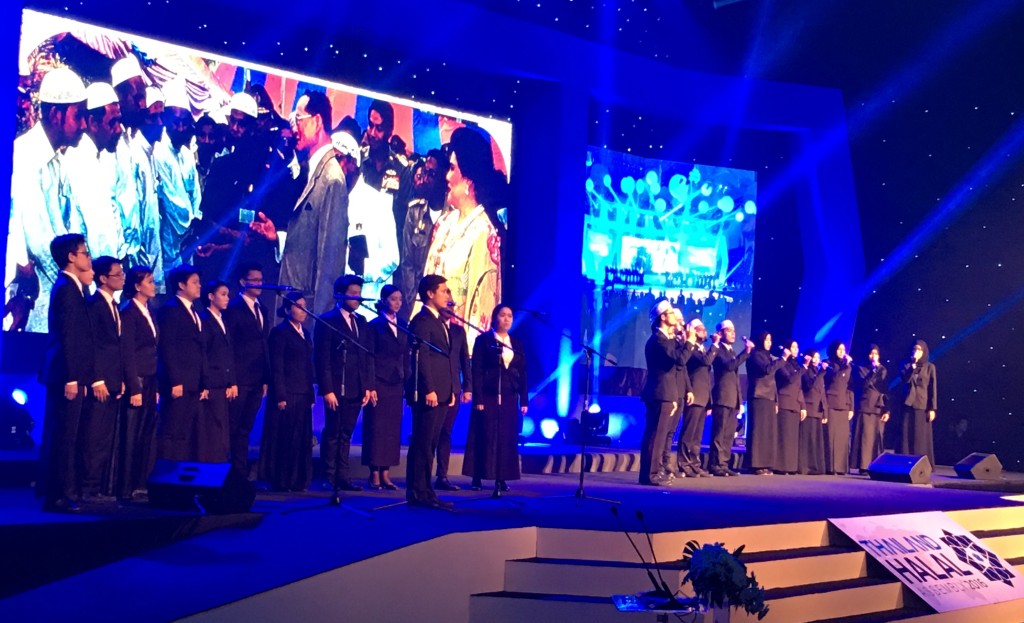 The Royal anthem was sung in both Thai and Arabic. |
Tourism, now Thailand’s fastest growing industry, had special pride of place this year with an entire half-day session devoted to a panel discussion and workshop on promoting Muslim-friendly tourism to Thailand. Prof Dr Pakorn Priyakorn, Director of the Halal Standard Institute of Thailand, noted that the Institute is working with the Tourism Authority of Thailand to set up proper standards for halal-certification of tourism products and services. The TAT’s Executive Director, Product Promotion Department, Mr. Nithee Seeprae outlined the TAT’s strategy and future activities to promote Thailand as a Muslim-friendly destination. This editor was also one of the speakers, on the topic of “Critical Success Factors for Promoting Thailand as a Muslim-Friendly destination.”
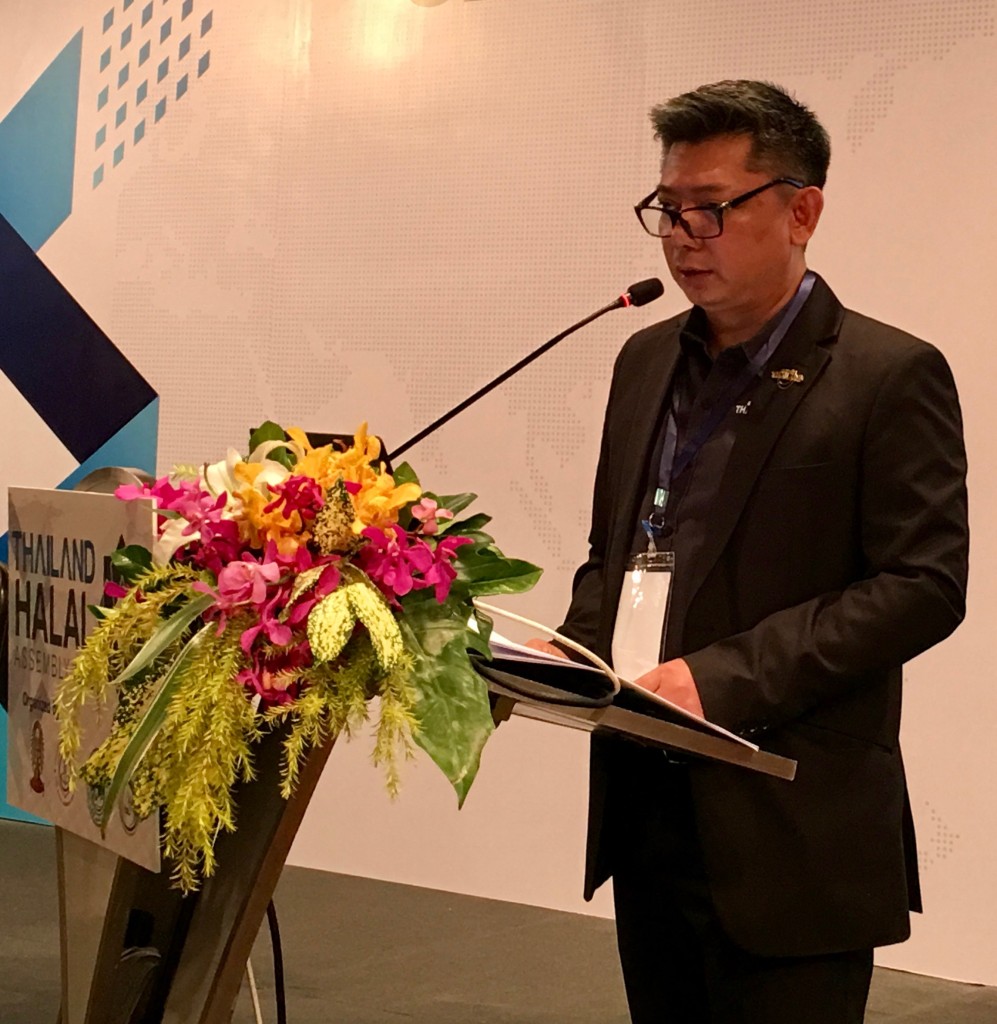 Mr Nithee of the TAT delivering his talk. |
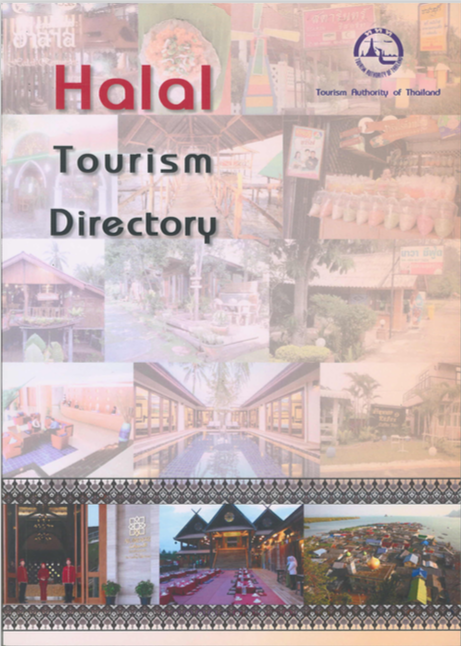 The TAT’s Halal Tourism Directory was available for free distribution at the Halal Assembly. |
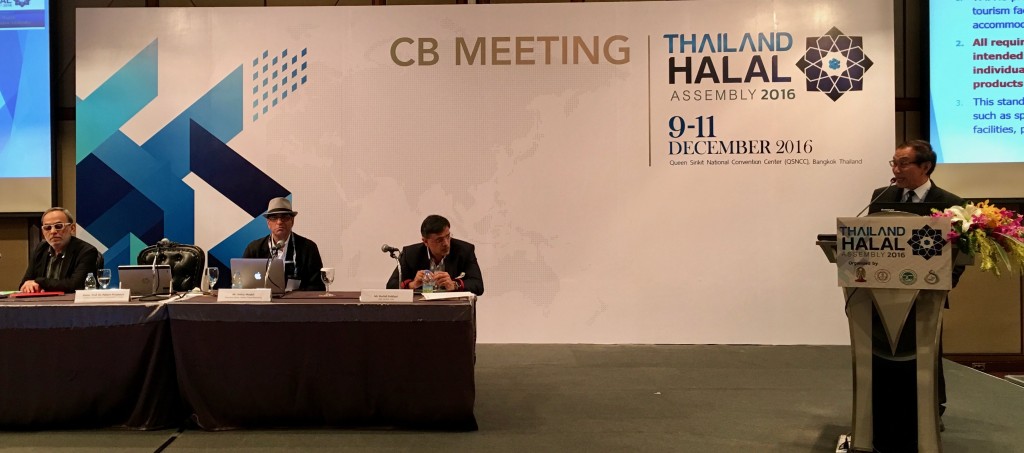 Thailand Halal Institute Director Dr Pakorn Priyakorn delivering his presentation at the panel discussion on Muslim-friendly tourism. On the panel are (from left), Mr Asad Sajjad, CEO of International Halal Centre Dubai, Imtiaz Muqbil, Executive Editor, Travel Impact Newswire, and Rushdi Siddiqui, CEO, Zilzer. |
|
Another regular supporter is the Secretary General of the National Economic and Social Development Board, Mr. Porametee Vimolsiri, who gave a comprehensive overview of how promotion of halal products and services fitted in well with King Bhumibhol’s sufficiency economy concept as well as the 20-year national development plan approved by the Thai government to boost the country’s competitiveness, quality of life and sustainability. After his speech, Mr. Porametee took the time to walk around the entire trade show. Moreover, the event gives Thai government agencies a chance to better understand the importance of the Muslim community. All the Thai agencies were represented.
The event also motivates and inspires young Thai-Muslims. Demographically, the Muslim world has a young population, which was more than apparent at the Halal Assembly turnout. One of Thailand’s most prominent personalities, Dr Surin Pitsuwan, the first Muslim to become a Thai Foreign Minister as well as ASEAN Secretary-General, and a regular guest at the Halal Assembly, clearly had these young people in mind when he delivered yet another of his motivating speeches.
Dr Surin cited how Thai Muslims are contributing to the Thai tourism industry, especially medical tourism, by providing PR and translation support to the hundreds of patients from the Middle East seeking treatment in Thai hospitals. He noted that the founder/owner of the popular Thai restaurant chain, Blue Elephant, is a Thai Muslim, that many of the Thai embassies in the Arab countries would not be able to operate without the translation help of Thai Muslims who had studied in Arab universities, that when the Thai Foreign Ministry was looking for a Thai to nominate as ASEAN Secretary-General, they turned to someone who had studied in a madrassah in South Thailand (Dr Surin himself).
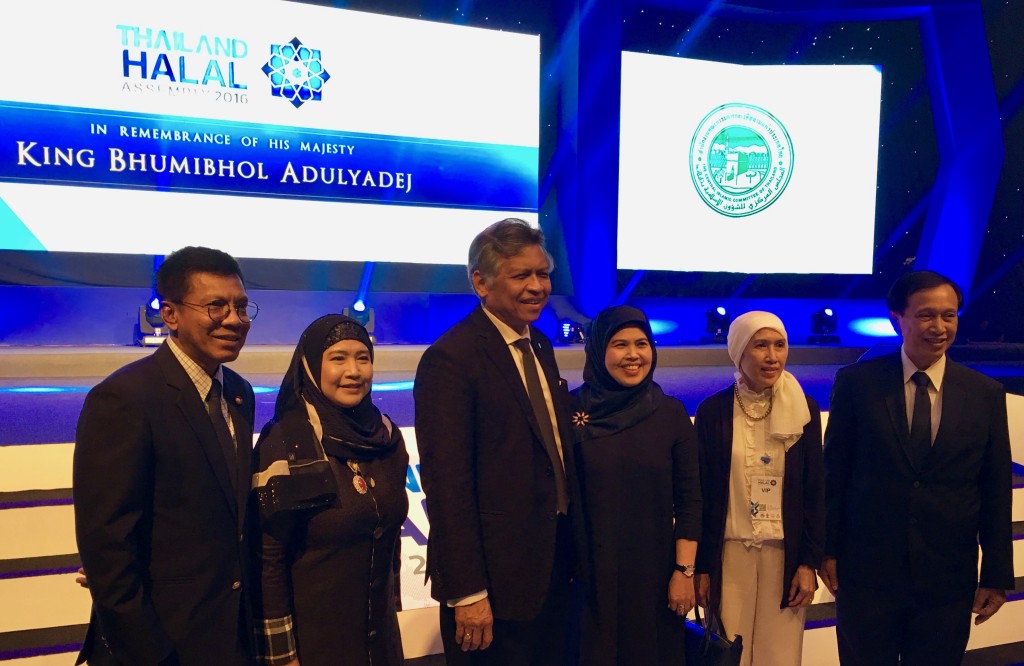
Dr Surin Pitsuwan (centre) with some of the delegates after his speech. At extreme right is Halal Science Centre Director Dr Winai Dahlan.
Thai businesses get a chance to boost their creativity. One exhibitor was selling prayer mats. These were no ordinary prayer mats. Originally a rubber company specialising in mattresses and pillows, it saw a clear opportunity to start making prayer mats with an inch-thick undercoating of rubber, targeted at the millions of aged and ageing Muslims suffering from knee problems. Thailand is a major rubber-producer, mainly in the southern provinces. The prayer mats, a new “fusion product”, help both the rubber industry and the halal sector. They sold well at the event.
There were other examples of creativity, including an online market for halal products and a halal food delivery service. This year, for the first time, the Halal Assembly came up with a separate listing of Halal start-up companies.
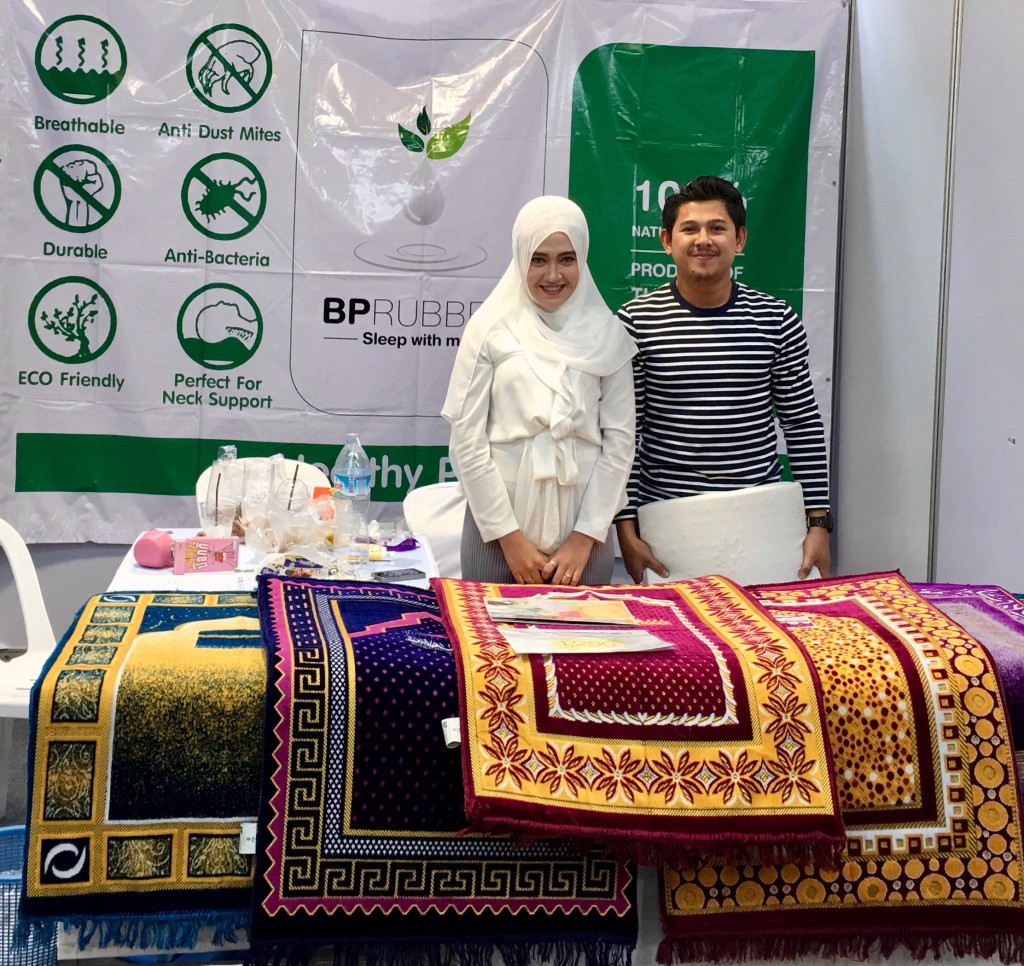 A new Thai-Muslim fusion-product, prayer mats with a thick rubber under-coating for the thousands of aged and ageing Muslims with knee problems. |
|
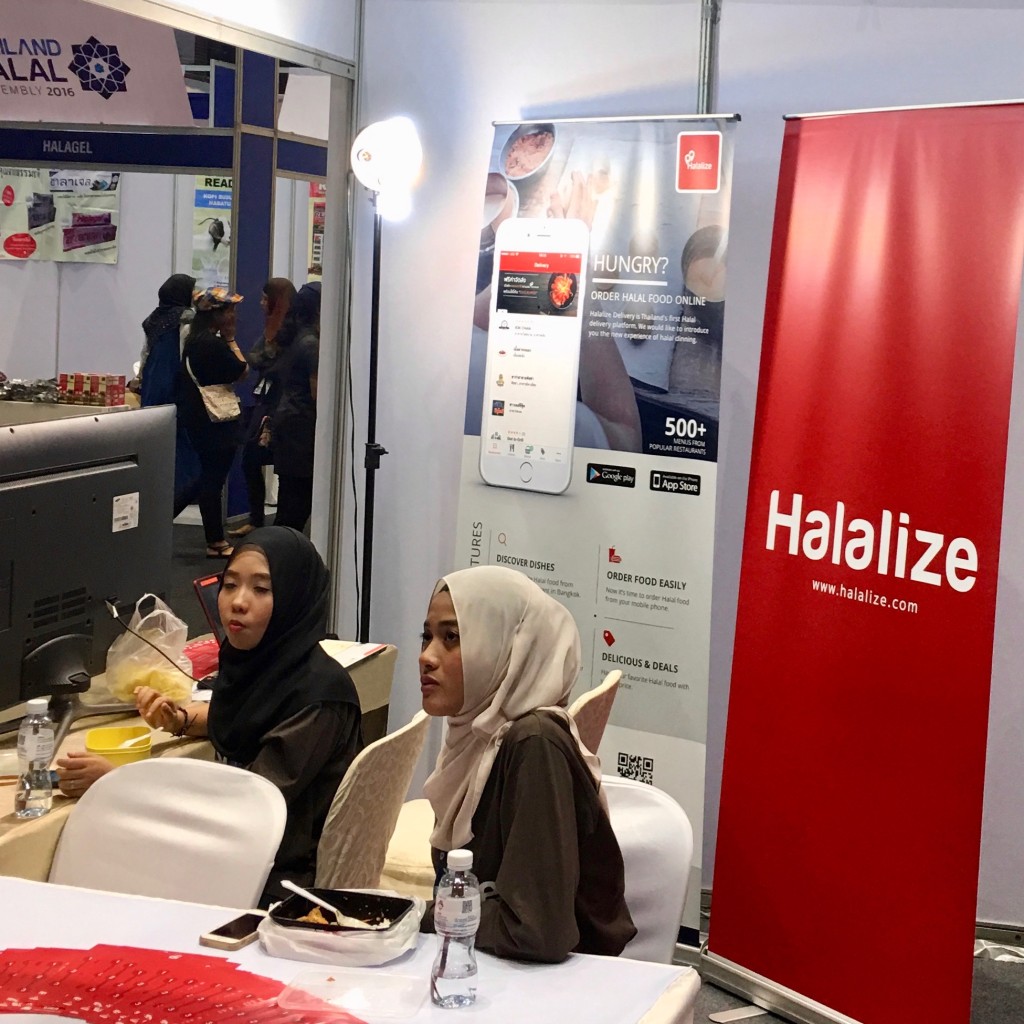 An app to get halal food delivered to homes in Bangkok. |
Islamic objectives
The Halal Assembly attracted business exhibitors from Indonesia, Malaysia, Syria, China, Iran, Palestine, Sri Lanka, Pakistan, selling products such as tea, dates, condiment sauces, perfumes, and fashion items. Some were first-time newcomers looking for distributors in Thailand. Encouraging trade amongst the Islamic countries and the developing countries as a whole is a major goal of the Organisation of Islamic Cooperation countries, and also advocated by groups such as the UN Conference on Trade & Development.
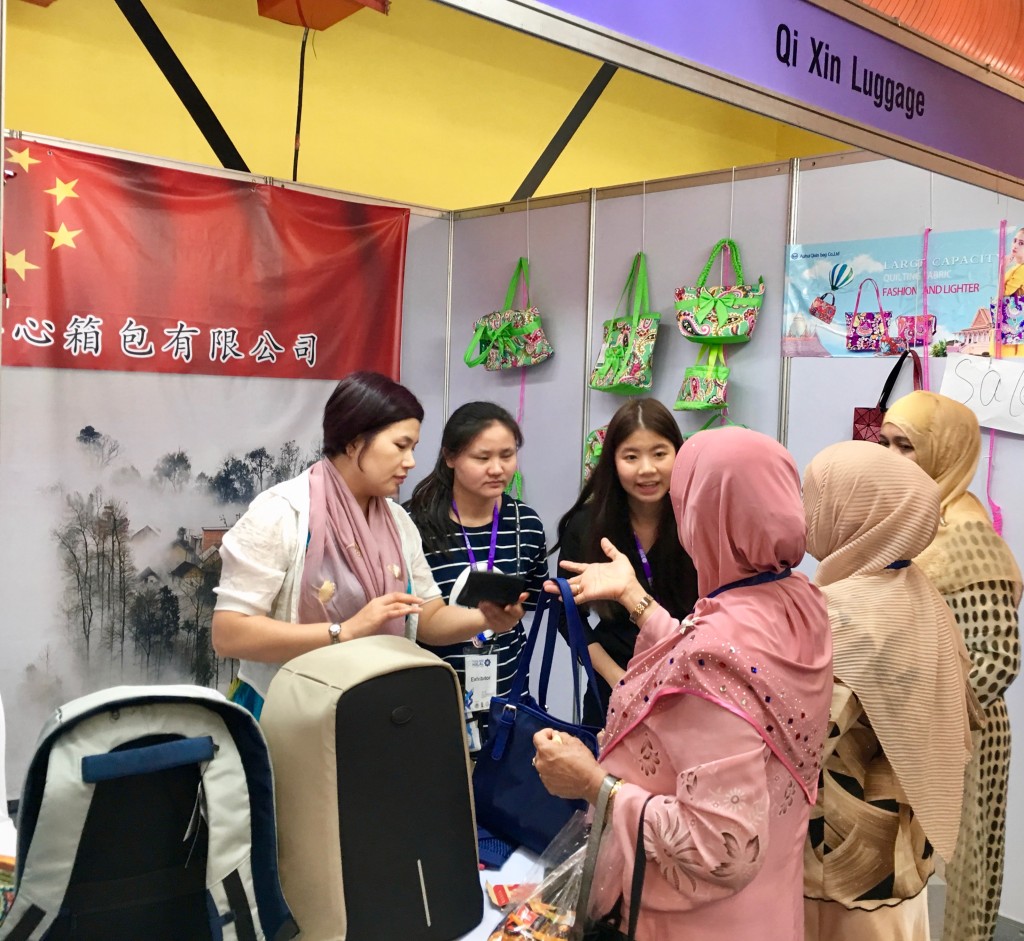 Foreign delegates: Bags from China. |
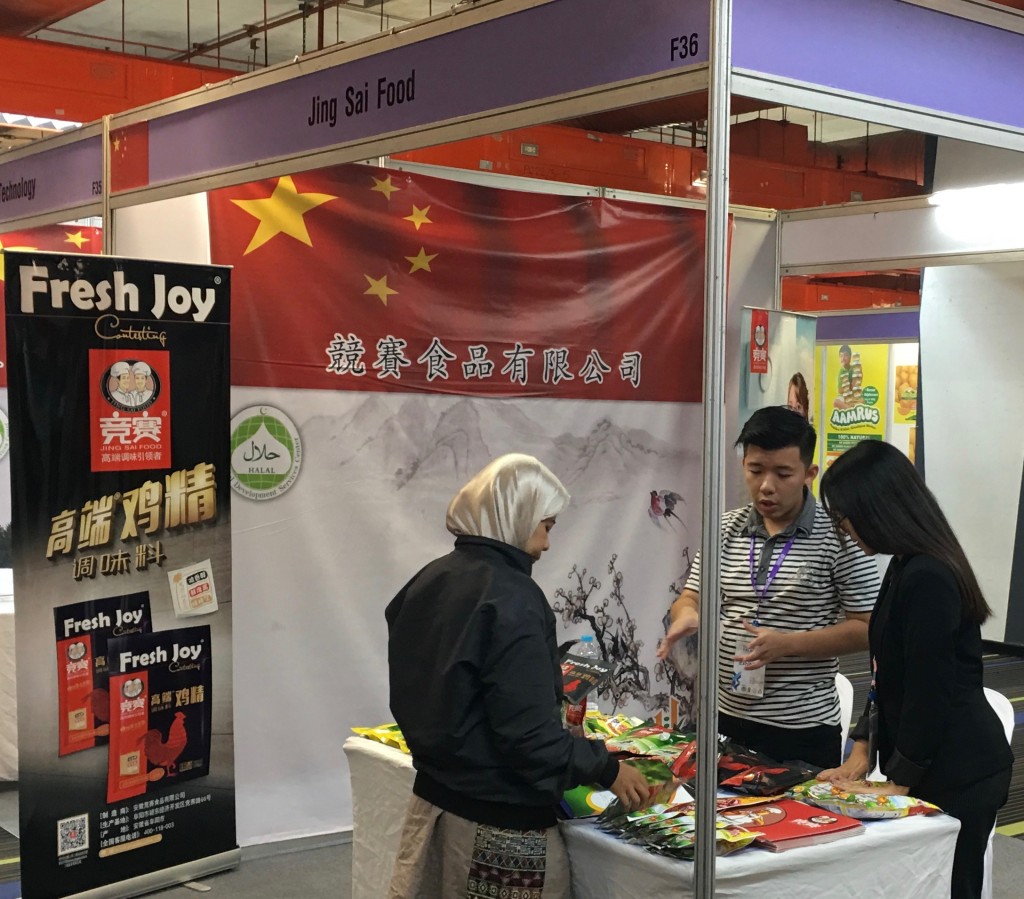 Foreign delegates: Foodstuff from China. 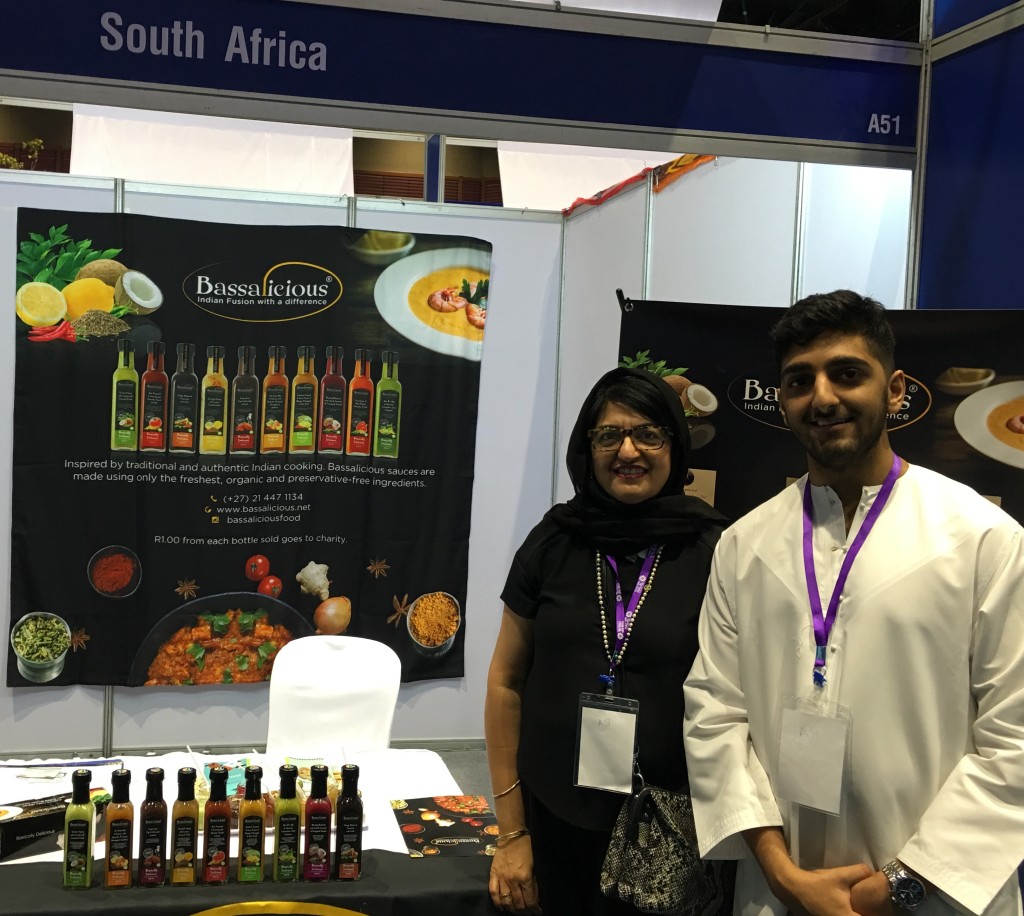 Exhibitors from South Africa – Razia Bassa of Bassalicious and her son. |
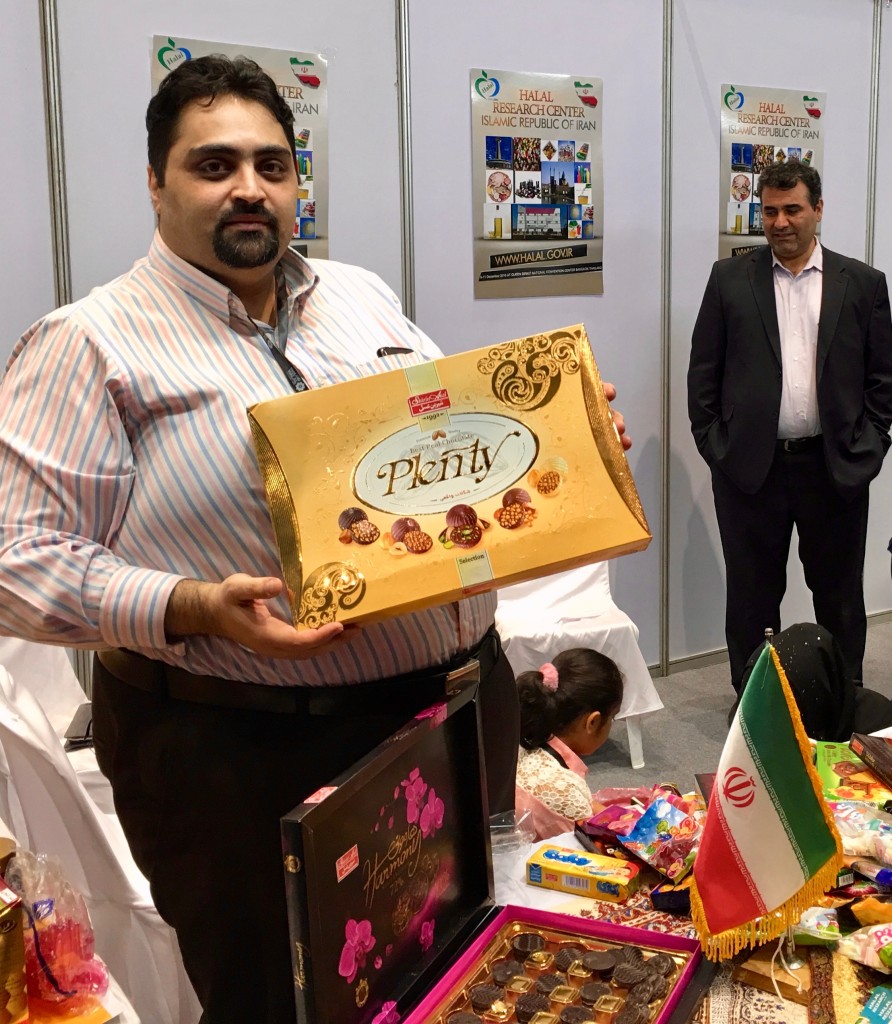 Foreign delegates: Confectionery from Iran. |
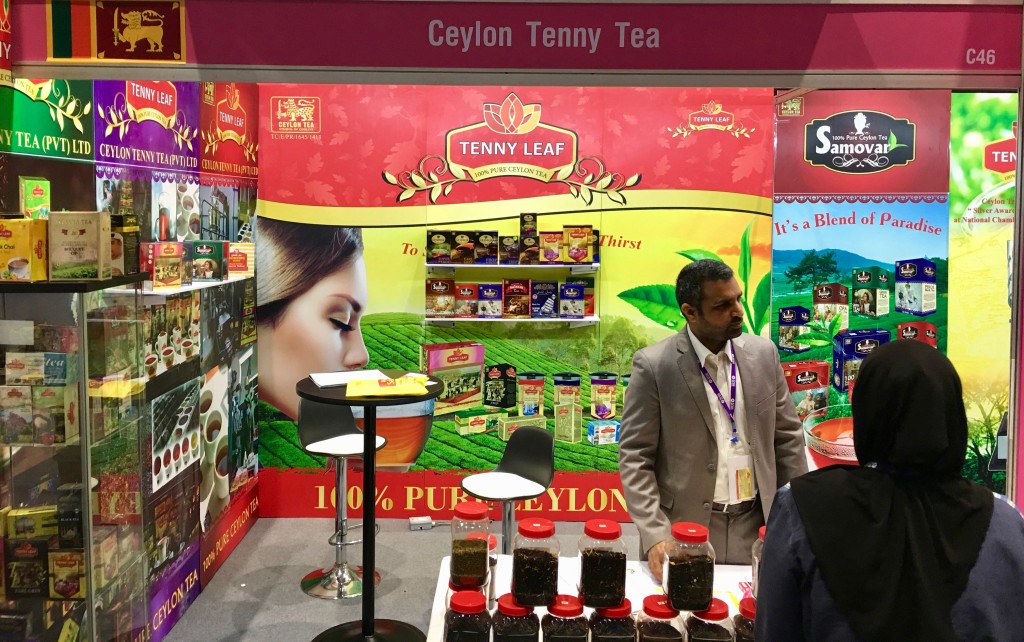 Foreign delegates: Tea from Sri Lanka. |
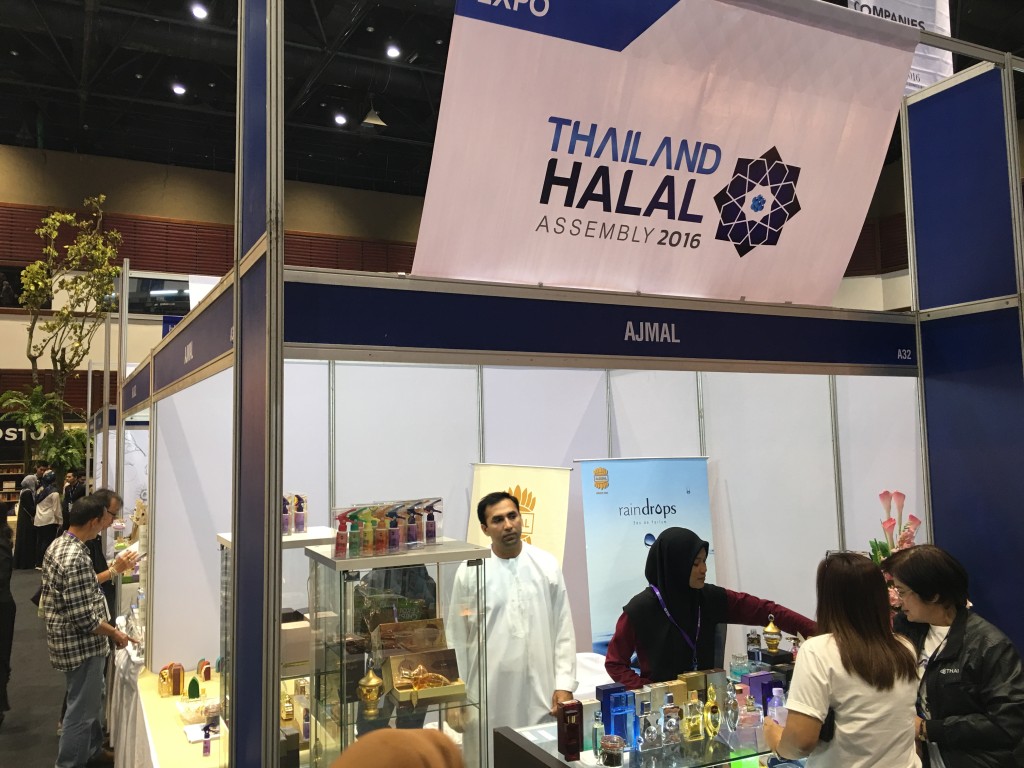 Foreign delegates: Ajmal perfumery. |
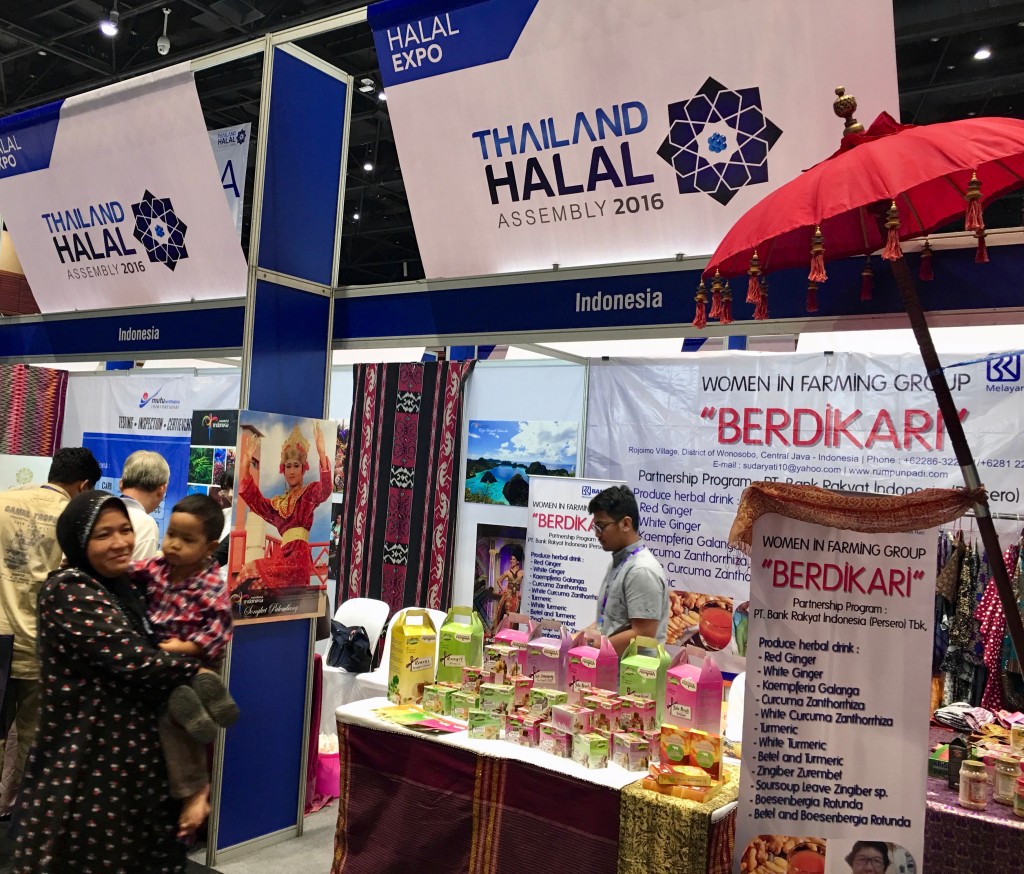 Foreign delegates: Women in Farming group from Indonesia. |
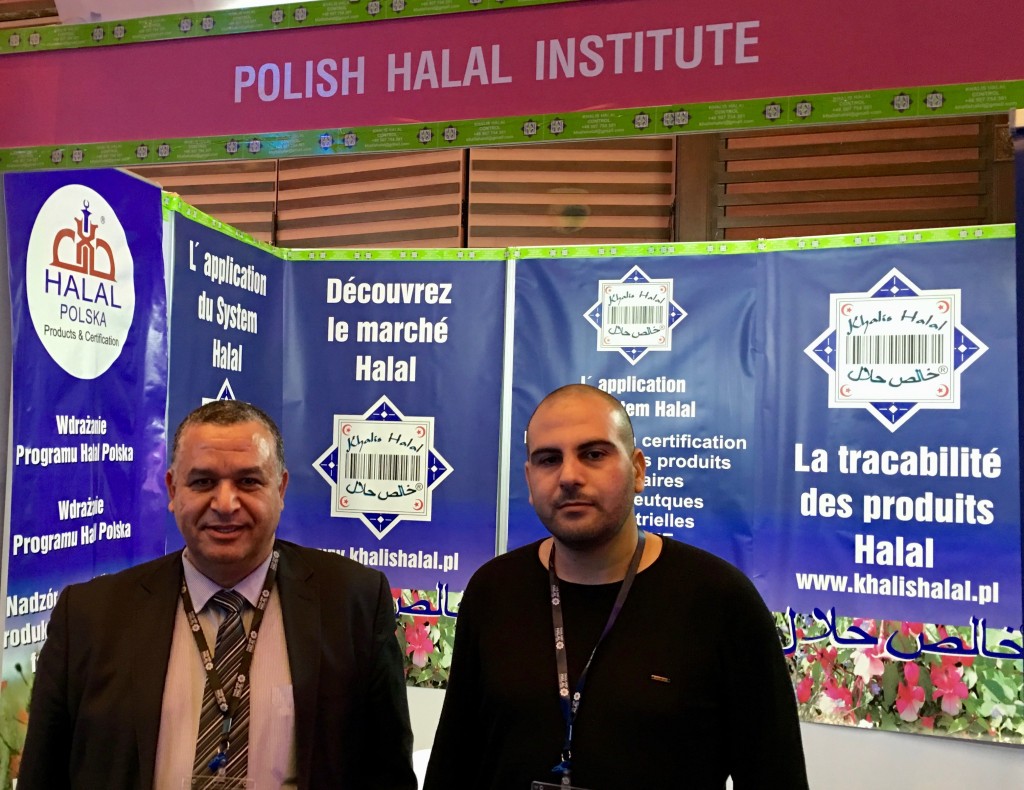 Foreign delegates: Yes, there is a Halal Institute in Poland, too. Dr Mohammed Saleh Messikh, Chairman, and Mr Khaled Zaiter, Regional Expert. |
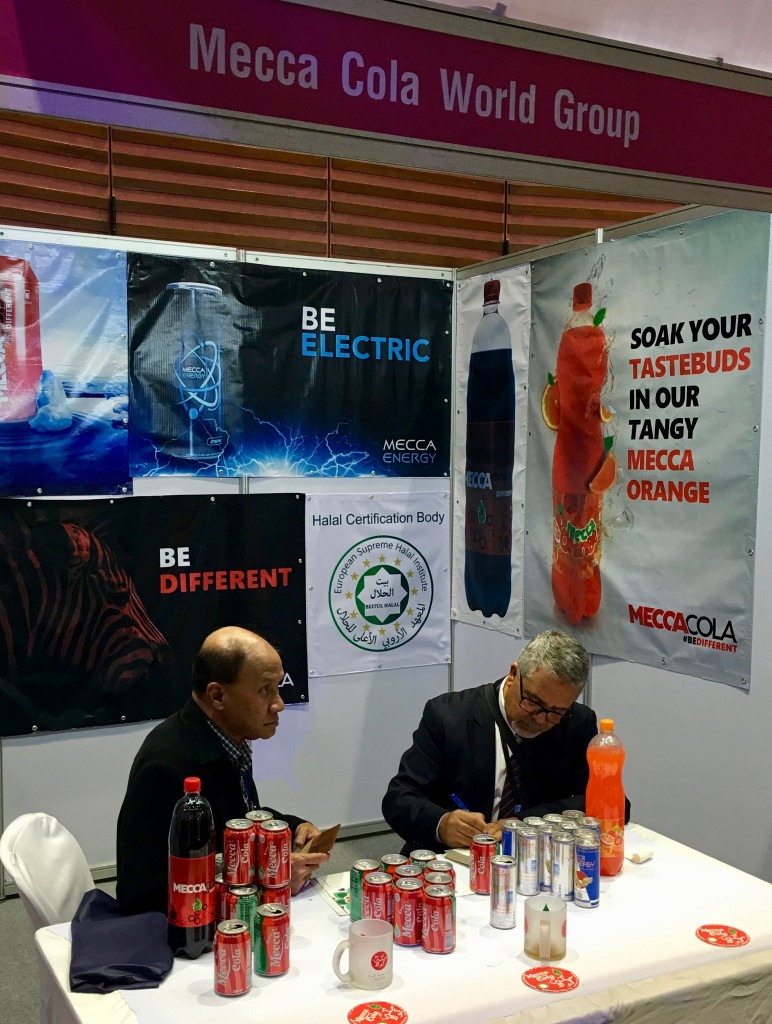 Foreign delegates: The Mecca Cola group. |
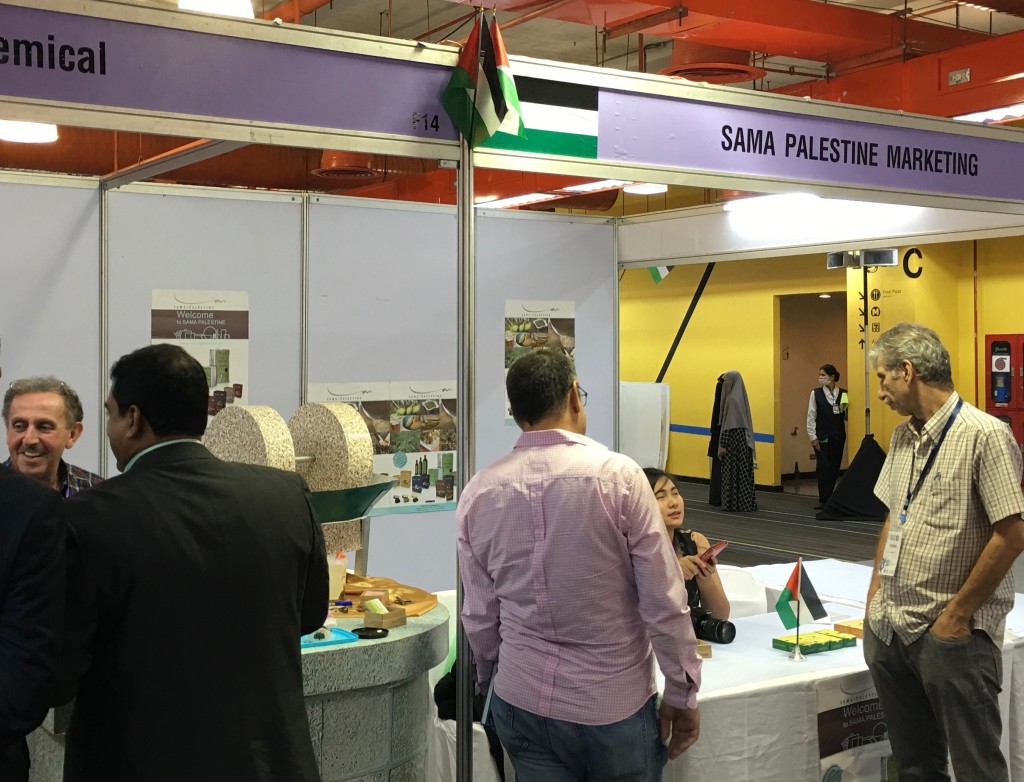 Foreign delegates: Soap and cosmetics from Palestine. |
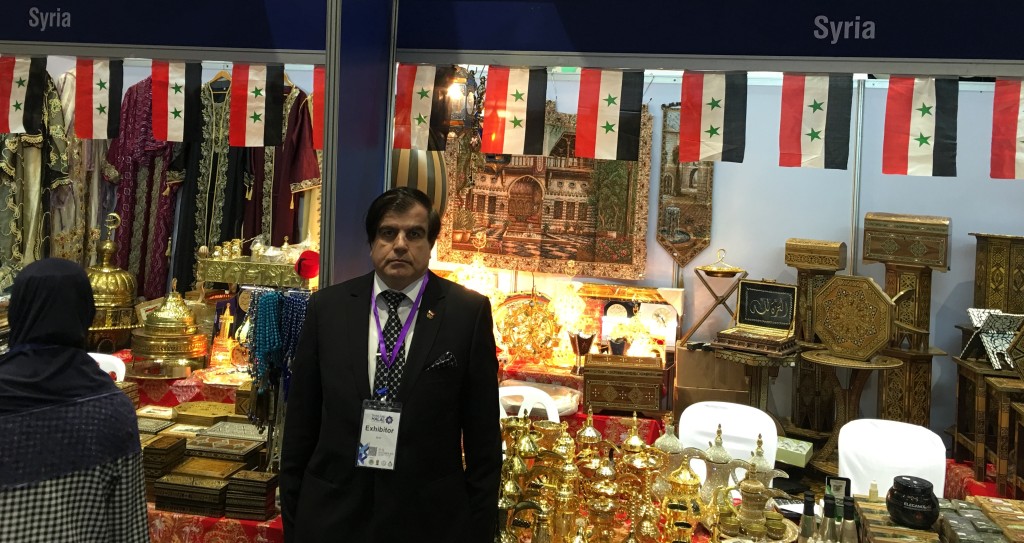 The Syrians had one of the most beautiful booths, headed by Consul General Imad Adel Khoudari. |
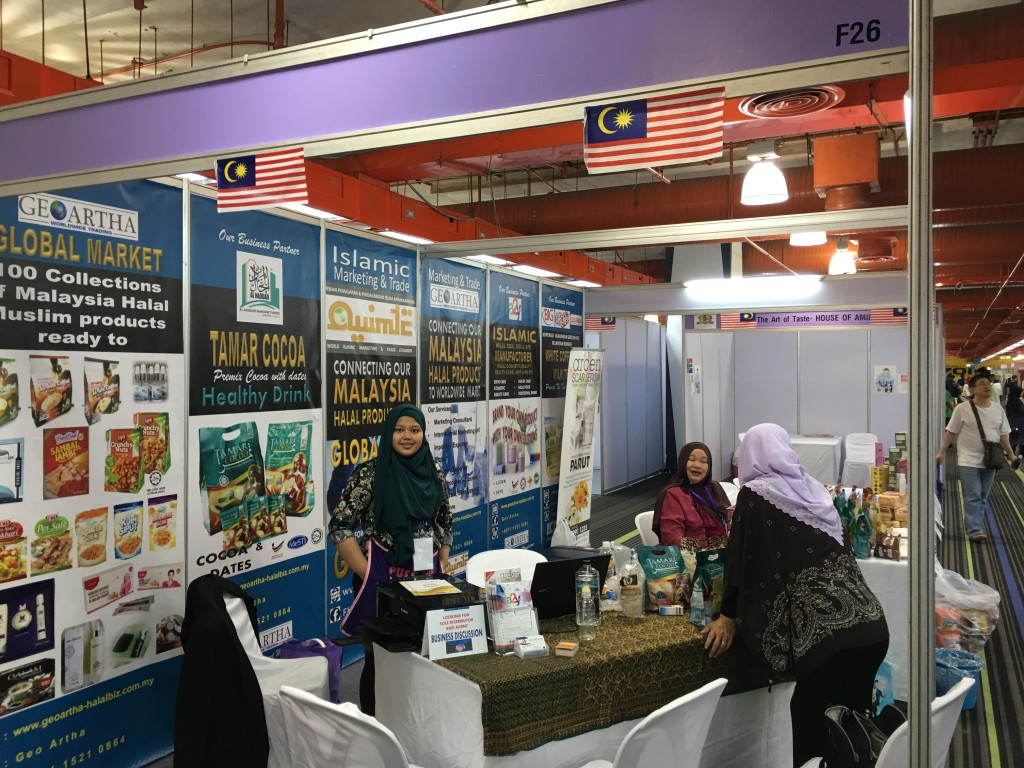 A whole range of halal products from Malaysia. |
Finally, the event does go a long way towards promoting a positive image of Thai Muslims. Like in other parts of the world, some sections of the Thai mainstream media and social media get hyperactive with anti-Muslim comments, especially in the aftermath of violence in South Thailand. The Thai-Muslim community knows well who is instigating this anti-Muslim campaign. The Thailand Halal Assembly goes a long way towards countering it with a powerful message that while there may be a minority of Muslims bent on creating trouble, there is a far bigger majority that is more than happy to live in peace and contribute to Thailand’s social, cultural and economic development.

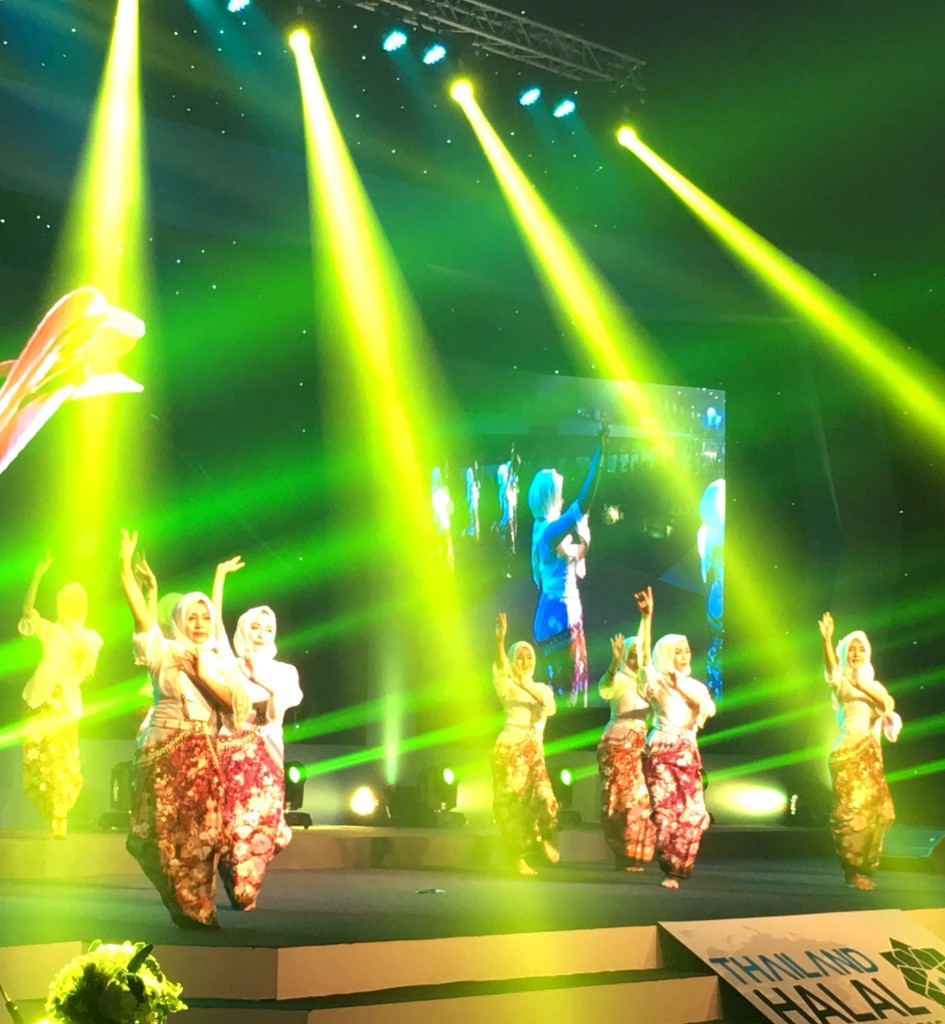


Liked this article? Share it!